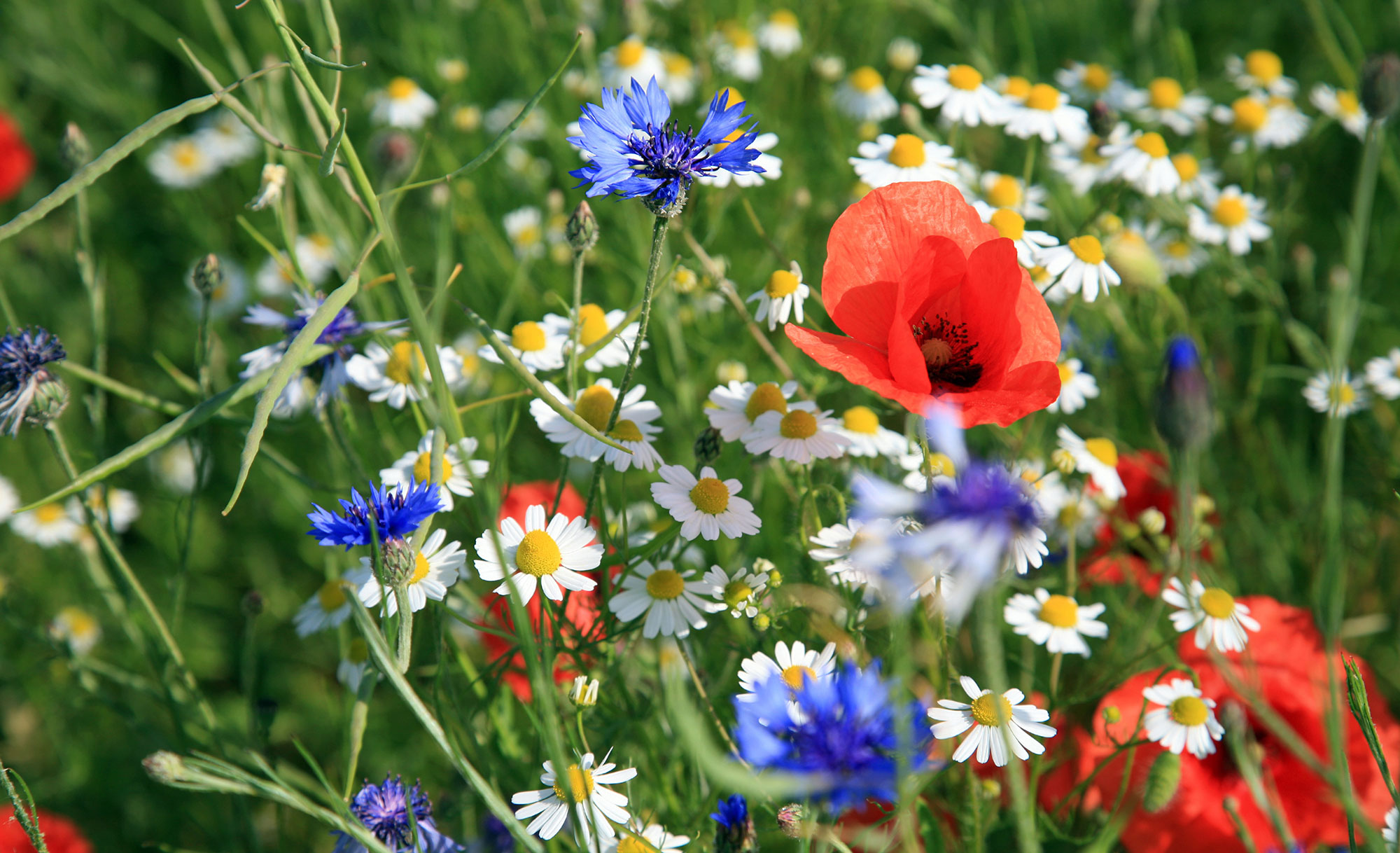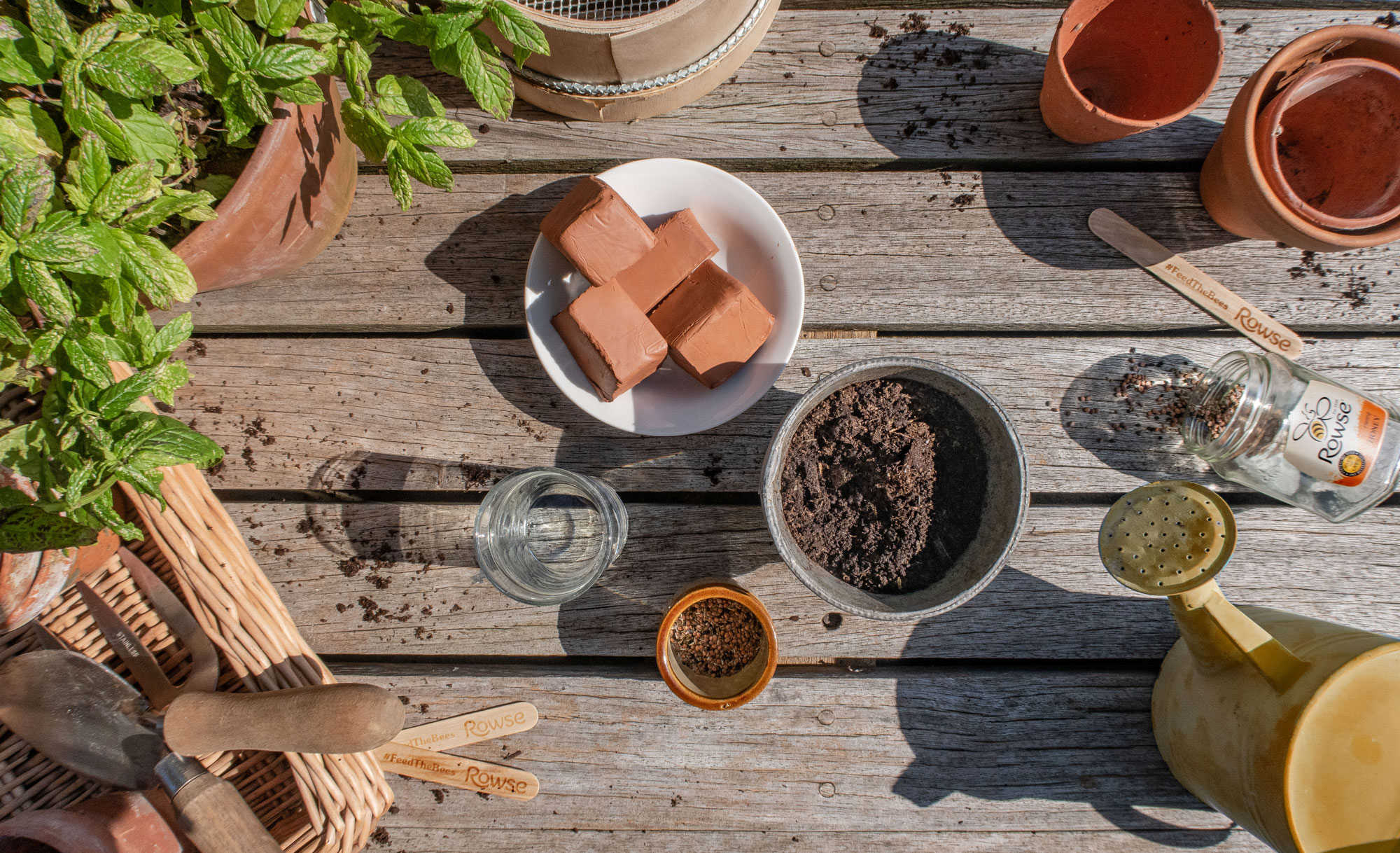How to make wildflower seed bombs
It’s wildflower sowing season – and with these homemade seed bombs, your garden will be a rainbow of luscious blooms come spring


Design expertise in your inbox – from inspiring decorating ideas and beautiful celebrity homes to practical gardening advice and shopping round-ups.
You are now subscribed
Your newsletter sign-up was successful
Want to add more newsletters?

Twice a week
Homes&Gardens
The ultimate interior design resource from the world's leading experts - discover inspiring decorating ideas, color scheming know-how, garden inspiration and shopping expertise.

Once a week
In The Loop from Next In Design
Members of the Next in Design Circle will receive In the Loop, our weekly email filled with trade news, names to know and spotlight moments. Together we’re building a brighter design future.

Twice a week
Cucina
Whether you’re passionate about hosting exquisite dinners, experimenting with culinary trends, or perfecting your kitchen's design with timeless elegance and innovative functionality, this newsletter is here to inspire
Wildflower seed bombs are easy to make and perfect for creating a garden that's rich in diversity. Now is the time to make and sow wildflower seed bombs – doing so in fall will ensure strong roots and growth in spring.
You can follow the seed bomb recipe below, but add in your own mix of favorite seeds – or wildflowers that grow well in your local area – to create your own unique wildlife garden ideas.
How to make wildflower seed bombs
Don't worry about knowing how to identify wildflowers, these homemade wildflower seed bombs from Rowse Honey’s gardening expert Michael Perry includes a mix of 11 wildflowers that all grow at different times, and that will attract butterflies, bees and other pollinators.
You will need:
- 5 handfuls of peat-free compost.
- 4 handfuls of air-dry red clay (this protects the seeds from harsh winds and hungry wildlife, and with the compost, provides them with all the nutrients they need.
- 1 handful of native wildflower seeds.
- A splash of water.
- A mixing bowl.
- A baking tray.
- Greaseproof paper.
1. Prepare your wildflower seed bomb ingredients

For our wildflower seed bombs, you’ll need just four ingredients. Gather them all in one place so that you're ready to make wildflower seed bombs quickly and efficiently.
2. Place the wildflower seed bomb ingredients in a bowl

Place the compost, clay and seeds in a large bowl, ready to mix.
3. Mix the wildflower seed bomb ingredients together

Combine all of the wildflower seed bomb ingredients together by hand, adding a splash of water if needed. You’re aiming for thick but mouldable consistency. The seed bombs need to hold their shape, so try to avoid adding too much water at once.
Design expertise in your inbox – from inspiring decorating ideas and beautiful celebrity homes to practical gardening advice and shopping round-ups.
4. Roll the wildflower seed bombs into balls

Once you’ve combined all your wildflower seed bomb ingredients, roll the mixture into little balls. The size is up to you – these ones are slightly larger, but you can make them smaller, similar to the size of a golf ball, if you’d prefer to scatter them over a larger area.
5. Place your seed bombs on a tray and leave them to dry

Place your seed bombs on greaseproof paper, ready to dry. Use a baking tray if you plan to move them elsewhere.
Leave for four to five days, or until they’ve completely hardened.
6. Sow your wildflower seed bombs

Now it’s time to sow your seed bombs. Wildflowers will bloom well in containers, window boxes and borders – anywhere sunny. Place them just below the surface of the soil for best results.
Like tulips and daffodils, wildflower seeds are best sown in fall, while the soil is still soft and warm. This gives them time to develop strong roots before the frost kicks in, resulting in bigger, healthier plants.
By spring, and throughout the summer, you’ll be treated to a sumptuous display of wildflowers, including cornflowers, chamomile and common poppies to name a few. You’ll also be doing your part to help protect our buzzing friends and their pollinating pals by providing them with the nectar nourishment they need to thrive.
Do seed bombs actually work?
Seed bombs do work. You can of course just scatter seeds over your soil, but it's more likely that they will fail to take hold. The compost/clay mix of a seed bomb mix gives them a better chance of flowering successfully – and easier to sow.
What can you do with seed bombs
The idea of seed bombs is to use them to easily populate bare soil – anywhere, not just at home – with wild flowers. So, if there's somewhere near your home that's difficult to reach, throw them bombs and enjoy the flowers in spring.

Lola Houlton is a news writer for Homes & Gardens. She has been writing content for Future PLC for the past six years, in particular Homes & Gardens, Real Homes and GardeningEtc. She writes on a broad range of subjects, including practical household advice, recipe articles, and product reviews, working closely with experts in their fields to cover everything from heating to home organization through to house plants. Lola is a graduate, who completed her degree in Psychology at the University of Sussex. She has also spent some time working at the BBC.